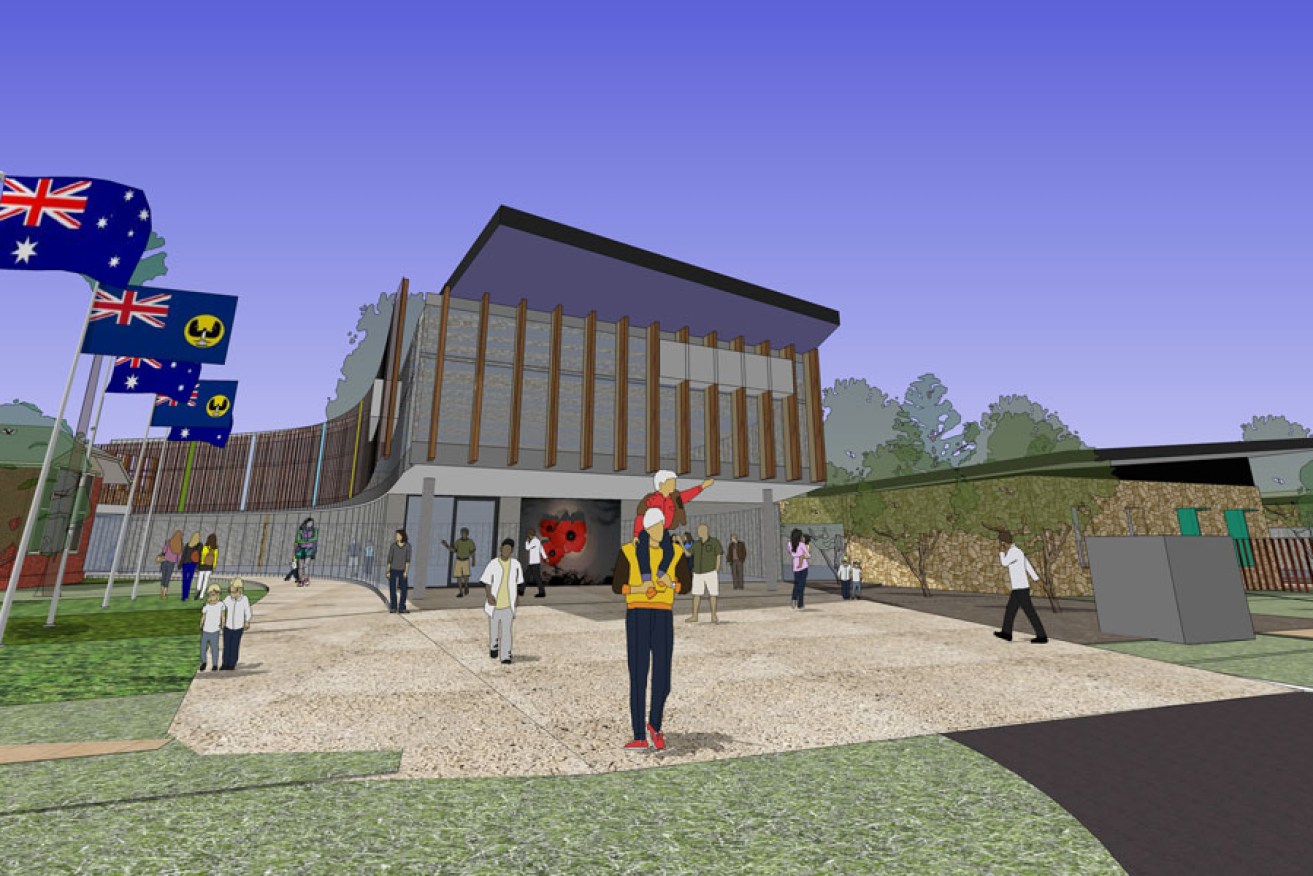Repat closure: Post-trauma move poorly considered

A State Government-produced image of the proposed new Glenside facility for veterans.
The State Government’s decision to relocate the Repat’s post-traumatic stress disorder facility to Glenside is unnecessary and poorly considered, argues Warren Jones.
A report from the ministerial expert panel has recommended that the Post Traumatic Stress Disorder (PTSD) facility (Ward 17) be relocated from the Repatriation General Hospital to the Glenside Psychiatric Hospital campus.
At best, this decision is premature, and, at worst, it is wrong.
It s surprising that such a large and apparently well-credentialled expert advisory panel could have produced such a flawed report, based on ill-informed assumptions. An otherwise trivial, but revealing mistake in the report, was the lack of care given to the frontispiece where Post Traumatic Stress Disorder was transmuted by typographical error into PSTD. Of course, this has been corrected subsequently, but the fact that it happened in the first place reflects poorly on the whole process.
Despite the promulgation of selective versions of veterans’ responses to the report, the majority of vets ‘in the street’ , including younger ones, do not support a move to Glenside. Their strongly held, and sensible, view is that is unrealistic, expensive, and undesirable to remove Ward 17 from the environment it enjoys at the Repat.
Indeed, even if the Repat, in its present form, is closed, a health care precinct could more easily be developed at Daw Park, with all the support services required to underpin the veterans’ needs. This will be impossible at Glenside without the prohibitive expenditure required to create what would, in effect, be a comprehensive general hospital facility. Failing this, the report’s solutions to the health care needs of the vets will be inadequate and unworkable. It suggests that the requirements for clinical co-morbidity care can be fully met ‘on site’ or ‘in reach’. This would involve the provision of pain, sleep, physiotherapy, dietetic, diabetes, hydrotherapy, pharmacy, and pathology services (to list a few), as well as access to medical and surgical facilities.
It is self-evident that this will be impossible to provide, other than by referral to external hospital facilities. All of this support is available at the Repat, or could, more easily and safely, be created at a revamped Daw Park site.
The ‘robust’ clinical, non-clinical, and research partnerships sought after in the Glenside proposal already exist at the Repat, and would be easily perpetuated at a transformed Daw Park site.
Another issue that is recognised, but downplayed, in the report, is the ‘stigma’, and other social and psychological aspects, of embedding a PTSD centre within a psychiatric hospital. The suggested contrived solutions to these very real concerns are separate branding and access for the veterans’ centre. Surely there comes a point where all of this complicated manipulation of the Glenside site and its functions becomes excessively expensive, and defeats the purpose of the whole exercise? How much easier would it be to reconsider the Daw Park option?
Much is made in the report of maintaining the veterans’ culture. This important aspect of their medical and psychological care has evolved over many years at the Repat, and cannot be transplanted. Nor is it realistic or economically possible to recreate ‘the sense of belonging’ embodied in the Repat chapel, museum, and remembrance garden by rebuilding them at Glenside.
Another question raised in the report is geography and accessibility. Glenside is more central, and potentially more convenient to the northern suburbs. However, 88 per cent of veterans live in central or southern Adelaide or in country areas. Accessibility is more important, and here Glenside has disadvantages – more surrounding traffic than Daw Park, and and the necessity for the vets to travel to other sites to access medical and surgical treatments.
The ‘robust’ clinical, non-clinical, and research partnerships sought after in the Glenside proposal already exist at the Repat, and would be easily perpetuated at a transformed Daw Park site. By its own admission, the report concedes that, even if these ambitious relationships could be re-kindled and brought to fruition at Glenside, they would need to be supported by new and expensive infrastructure.
On the question of expense, it needs to be remembered that a plan for a new Ward 17 at the Repat site three years ago was costed at $17 million, say $20 million in today’s money. This suggests that the $15 million allocation for the Glenside plan will be grossly inadequate. In addition a substantial capital investment will be required to provide infrastructure and services for all the unbudgeted clinical and non-clinical co-dependencies, and to embellish the ‘cultural’ environment of a Veterans’ ‘Hub’. The final cost could lie somewhere between $30–50 million.
This is a high price to pay for a disruption of veterans’ health care services, based on political expediency, and without any discernable prospect of improving their lot. There is still time for the Government to step back from this ill-conceived plan and re-consider its options.
Warren Jones AO is an Emeritus Professor at Flinders University and a former head of obstetrics at the Flinders Medical Centre.
Go here for the State Government’s explanation of the plan, including the views of expert panel members.




